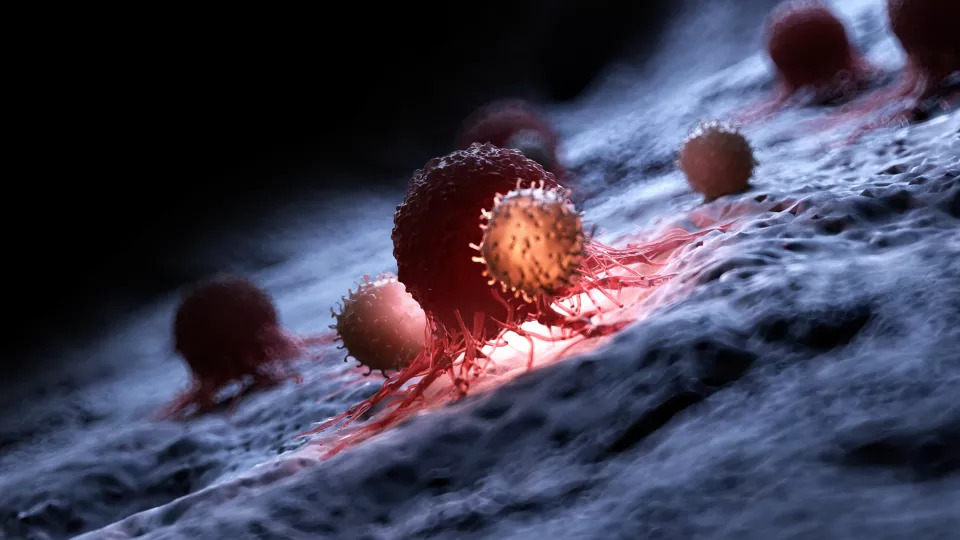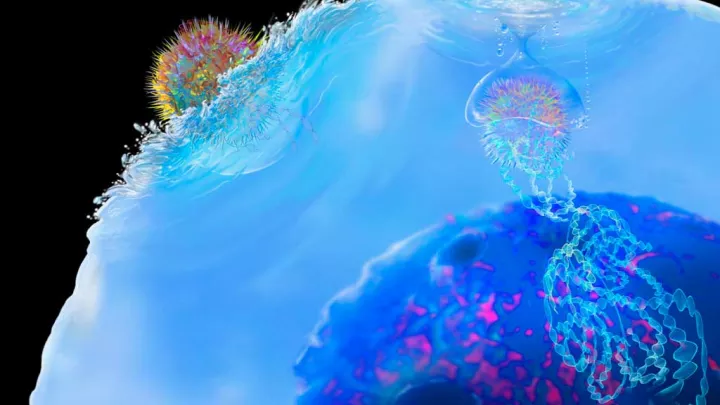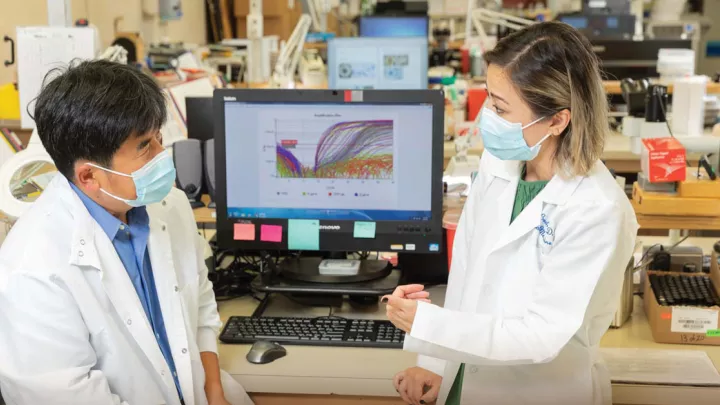
Team Led by Children’s Hospital Los Angeles Researcher Generates Comprehensive, Developmental Map of Human T-cells
LOS ANGELES (Jun. 16, 2020) — Chintan Parekh, MD, of The Saban Research Institute of Children’s Hospital Los Angeles, has led a team of investigators that generated a comprehensive roadmap for how T-cells develop in the human thymus. The study will be published in the journal Immunity on June 16. T-cells are a type of white blood cell involved in immune response—fighting off invaders like pathogens or cancer cells. Understanding human T-cell development is crucial for treating diseases arising from abnormal T-cell development, like leukemia and immunodeficiencies, and for developing highly effective immunotherapies, like CAR-T.
“While most previous studies have been done in mice, our study specifically reveals a high-resolution picture of human T-cell development,” says Dr. Parekh. “Because of the biological differences between species, it’s critical to specifically study human T-cells in order to generate the information we need to understand human disease and to design novel immunotherapies.”
Using single-cell sequencing technology to study cells isolated from human thymic tissue, the investigators mapped the various stages of T-cell development in the human thymus, including the multitude of genes that switch on or off at each stage. They charted the different developmental routes that the most immature cells in the thymus may take as they progress to maturity and discovered stages of development and patterns of gene activity unique to humans.
This knowledge could lead to greater insights into diseases arising from T-cell deficiencies or abnormal T-cells such as immunodeficiency disorders (severe combined immunodeficiency disease or SCID), T-cell mediated autoimmune diseases (type 1 diabetes, rheumatoid arthritis) and leukemia (T-cell acute lymphoblastic leukemia).
The findings could also help in the advancement of immunotherapies like CAR-T therapy, regarded as one of the most significant advances in cancer treatment. A greater understanding of T-cell development is also needed to advance treatments to expedite recovery of the immune system in patients who have undergone bone marrow transplantation for treatment of cancer and other diseases.
The single cell data for developing T-cells is available on the National Center for Biotechnology Information (NCBI) Gene expression omnibus (GEO) database. This public genomics data repository ensures that other researchers have access to the data so they can learn more about which genes regulate T-cell development and use that knowledge to understand T-cell diseases and design new immunotherapies.
Additional study authors include lead authors Justin Le and Jeong Eun Park, Vi Luan Ha, Annie Luong and Fan Li of Children’s Hospital Los Angeles; Sergio Branciamore, Andrei Rodin and Grigoriy Gogoshin of City of Hope National Medical Center; Yong-Hwee Loh of the University of Southern California; and Robert Welner, Virginia Camacho and Sweta Patel of the University of Alabama at Birmingham. Dr. Parekh’s funding for this study includes the St. Baldrick’s Foundation, the Nautica Foundation, the Shirley McKernan Courage Foundation, Couples Against Leukemia, Hyundai Hope on Wheels and SHARE Inc.
About Children's Hospital Los Angeles
Founded in 1901, Children's Hospital Los Angeles is ranked the top children’s hospital in California and fifth in the nation for clinical excellence with its selection to the prestigious U.S. News & World Report Honor Roll of children’s hospitals. Clinical care is led by physicians who are faculty members of the Keck School of Medicine of USC through an affiliation dating from 1932. The hospital also leads the largest pediatric residency training program at a freestanding children’s hospital of its kind in the western United States. The Saban Research Institute of Children’s Hospital Los Angeles encompasses basic, translational and clinical research conducted at CHLA. To learn more, follow us on Facebook, Instagram, LinkedIn and Twitter, and visit our blog for families (CHLA.org/blog) and our research blog (CHLA.org/blog/research).


